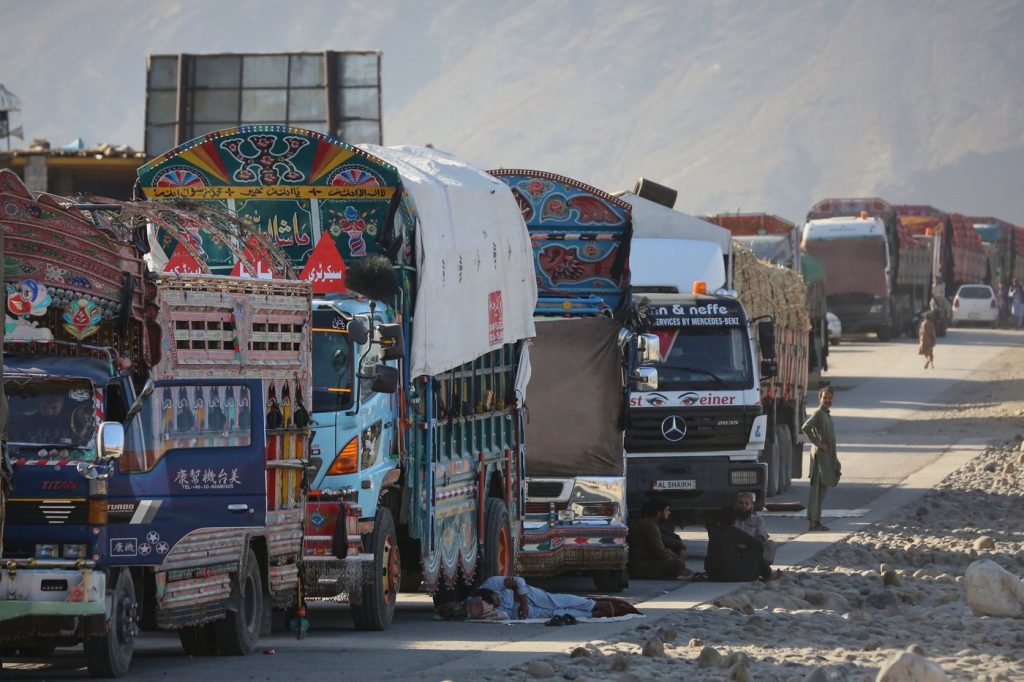PESHAWAR, Pakistan (AP) — On Saturday, Pakistan partially reopened the Torkham border crossing with Afghanistan, allowing thousands of stranded Afghan refugees to return home, as confirmed by officials. However, all other forms of cross-border movement, including trade, remain restricted.
The border closures initially took place on October 12, following deadly clashes between Pakistani and Afghan troops, which resulted in both sides claiming to have inflicted significant casualties. This closure lasted nearly three weeks and left thousands of Afghan refugees in limbo, as well as hundreds of trucks loaded with goods, effectively halting essential trade routes between the two nations.
The decision to reopen the border came after negotiations facilitated by Turkey and Qatar, which led to an agreement between Pakistan and Afghanistan to maintain a ceasefire. These discussions lasted nearly a week and aimed to mitigate the potential for a broader conflict in the region. Following this agreement, no new incidents of gunfire were reported along the 2,611-kilometer (1,622-mile) border, known as the Durand Line, which Afghanistan continues to contest.
Authorities noted that many Afghan refugees had been relocated to a temporary camp near the border, while others awaited the resumption of crossing opportunities along the roadside. Despite the partial reopening, trade across the border remains suspended on both sides. Officials from the Afghan side stated that the reopening of the Torkham gate on Saturday morning was exclusively for Afghan refugees, with thousands anticipated to return home throughout the day. They advised all other travelers to refrain from using the crossing until further notice.
A video shared by Afghanistan's eastern Nangarhar province’s Information and Culture Department depicted local officials and Afghan soldiers greeting returning refugees at the Torkham gate with flowers. This development followed comments made by Afghanistan's ambassador to Pakistan, Ahmad Shakeeb, who expressed concerns over the large number of Afghan refugees stranded due to the border closure on social media.
In response, Pakistani Foreign Ministry spokesman Tahir Andrabi criticized the Afghan ambassador for breaching diplomatic protocols by airing grievances publicly rather than communicating through official channels. Since the beginning of 2023, Pakistan has begun efforts to deport immigrants residing illegally in the country, resulting in the repatriation of over a million Afghans as part of this initiative.
Earlier this month, Pakistan's military conducted airstrikes targeting what it described as the hideouts of the Pakistani Taliban in Afghanistan, claiming to have killed numerous insurgents. However, Afghan officials contested the reports, alleging that civilians were among the casualties and stating that Afghan forces retaliated by attacking Pakistani military posts, resulting in the deaths of 58 soldiers. In acknowledgment, Pakistan's military confirmed the loss of 23 troops during the confrontations.
The escalated violence prompted Qatar to invite delegations from both countries to Doha, leading to the ceasefire agreement on October 19. This was followed by six days of discussions in Istanbul, which concluded with a mutual agreement to uphold the truce.
In recent months, Pakistan has experienced a notable increase in militant attacks, many of which have been claimed by the Tehrik-e-Taliban Pakistan, a group classified as a terrorist organization by both the United States and the United Nations. While the Afghan Taliban and the Pakistani Taliban are distinct entities, the latter has found increased momentum since the Taliban's takeover of Kabul in 2021.











